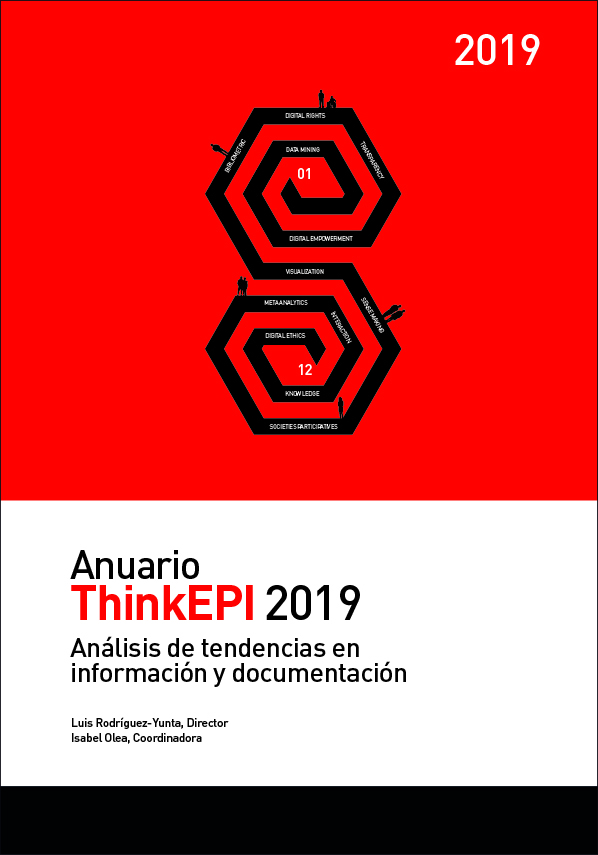Google Trends: Search analytics at the service of researchers, professionals and curious people
DOI:
https://doi.org/10.3145/thinkepi.2019.e13inf01Keywords:
Google Trends, Newcasting, Forecasting, Cybermedia, Online media, SEO, Search engine optimization, Webometrics, Online metrics, Search analyticsAbstract
Google Trends was updated in May 2018, adding important nevelties, such as a redesign of the search trends section, improvements in the visualization of data, and the inclusion of Stories, pieces of curated content very useful for Communication professionals. The main objectives of this work are to explain the basics of this new version of Google Trends, to describe its features and to discuss its usefulness as a metric analysis tool for information professionals. It is concluded that Google Trends is not a valid tool to be used in cybermetric analysis. Despite this, the service offers very useful data if it is used professionally, especially in the field of SEO (search engine optimization). The current orientation of Google Trends towards journalism and communication could be a strategy to redirect web traffic to certain online media.Downloads
References
Ball, Philip (2013). "Counting Google searches predicts market movements". Nature news, n. 12879, 26 April. https://doi.org/10.1038/nature.2013.12879
Choi, Hyunyoung; Varian, Hal (2012). "Predicting the present with Google Trends". Economic record, v. 88, n. S1, pp. 2-9. https://doi.org/10.1111/j.1475-4932.2012.00809.x
Ginsberg, Jeremy; Mohebbi, Matthew H.; Patel, Rajan S.; Brammer, Lynnette, Smolinski, Mark S.; Brilliant, Larry (2009). "Detecting influenza epidemics using search engine query data". Nature, v. 457, n. 7232, pp. 1012. https://doi.org/10.1038/nature07634
Jansen, Bernard J. (2009). "Understanding user-web interactions via web analytics". Synthesis lectures on information concepts, retrieval, and services, v. 1, n. 1, pp 1-102. https://doi.org/10.2200/S00191ED1V01Y200904ICR006
Jun, Seung-Pyo; Yoo, Hyoung S.; Choi, San (2018). "Ten years of research change using Google Trends: From the perspective of big data utilizations and applications". Technological forecasting and social change, v. 130, pp. 69-87. https://doi.org/10.1016/j.techfore.2017.11.009
Orduña-Malea, Enrique; Aguillo, Isidro (2015). Cibermetría: midiendo el espacio red. Barcelona: UOC Publishing. Colección EPI Scholar. ISBN: 978 84 9064 654 0
Preis, Tobias; Moat, Helen S.; Stanley, H. Eugene (2013). "Quantifying trading behavior in financial markets using Google Trends". Scientific reports, v. 3, art. n. 1684. https://doi.org/10.1038/srep01684
Serrano-Cobos, Jorge (2019). Hábitos de búsqueda online de información sobre lectura, libro y biblitoecas en España (2004-2016). Tesis doctoral. Zaragoza: Universidad de Zaragoza.
Shimshoni, Yair; Efron, Niv; Matias, Yossi (2009). On the predictability of search trends. http://static.googleusercontent.com/media/research.google.com/es//archive/google_trends_predictability.pdf
Vosen, Simeon; Schmidt, Torsten (2011). "Forecasting private consumption: Survey-based indicators vs. Google trends". Journal of forecasting, v. 30, n. 6, pp. 565-578. https://doi.org/10.1002/for.1213
Downloads
Published
How to Cite
Dimensions


